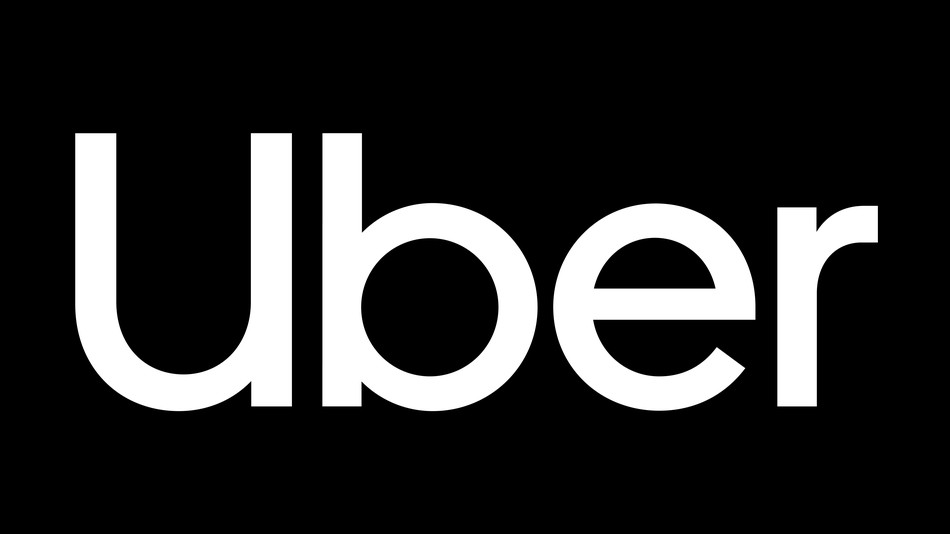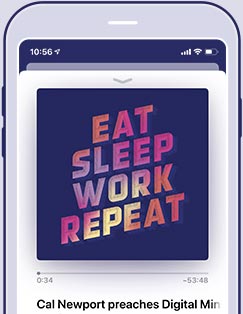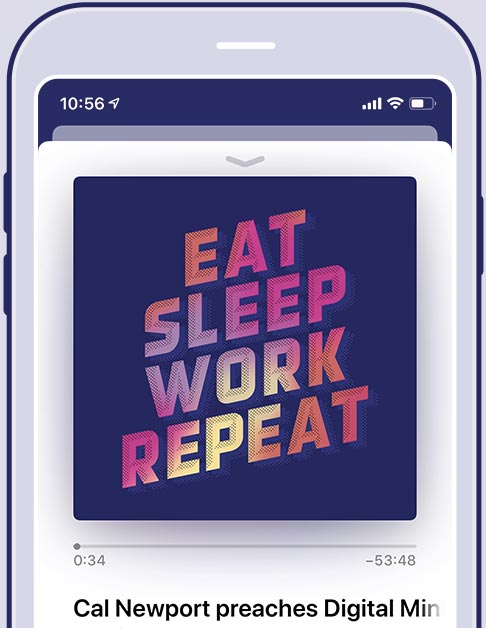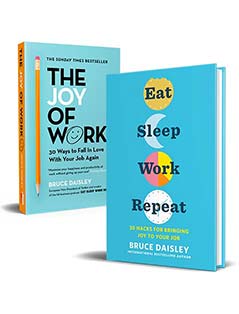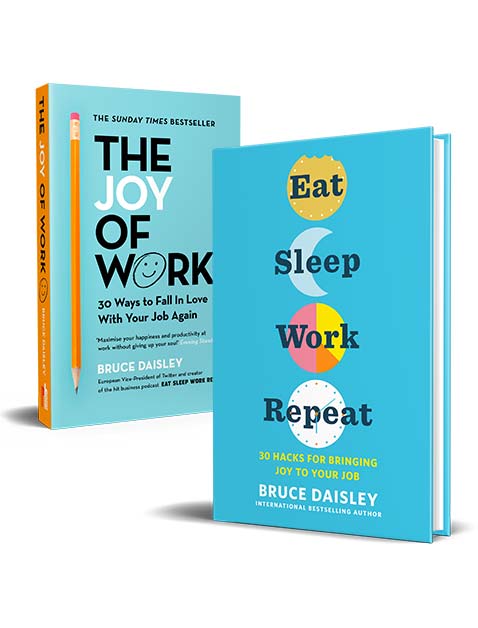Uber – When Cultures Go Bad
Brad Stone has written behind the scenes studies of some of the most well known tech firms in the world. By spending time with the leaders of Uber, Amazon and Airbn.png) b Brad has gained a deep understanding of what culture these firms create – whether via accident or design.
b Brad has gained a deep understanding of what culture these firms create – whether via accident or design.
Brad’s latest book is The Upstarts – about Uber and Airbnb.
We started our discussion talking about Jeff Bezos at Amazon. How did he think about creating the Amazon culture.
Brad Stone: He was extremely thoughtful about it. He wanted a high achievement culture. He looked at Microsoft across Lake Washington and thought we don’t ever want to be a country club or rest on our laurels. And he set early in the company’s history a set of values that he evolved over the years but that attracted a certain kind of employee and probably ejected people who weren’t very well fitted. One of the Amazon values that stands out to me was there’s one that is with regards to what he calls social cohesion and easy things that people will try to get along with each other and that that can obscure the search for the truth. There’s value around kind of conflict yielding better outcomes. So Amazon has become or can be an environment where people bang off each other as they argue for the greater good. That’s why Amazon can be an uncomfortable place to work but arguably one of the few companies that has managed to innovate at scale.
Uber and Airbnb are both in their first decade as companies and I would say are less mature culturally. In fact in the case of Uber perhaps a little meandering in terms of what kind of workplace culture they have. And that’s sustainable. Both of these companies have had rapid growth right. From hundreds of people to Airbnb probably between three and 4000 and Uber over 10000 in just two years.
So I would say probably a little bit of chaos reigns at both companies. More so with Uber which doesn’t have the seasoned management team that I think Airbnb has right now
Specifically going into Uber, we’ve seen Uber being so much in the news lately and so many issues. But in fact it’s only from going through your book, you’re reminded there were the issues of 2014. There is a laundry list of major PR disasters. Is there something in the culture that just creates those things or is it about the space that they’re in?
BRAD They were not the first company to try to innovate in transportation. There was almost a battlefield full of bodies of companies that had failed to make any headway in reforming the taxi industry and modernising it. And it took kind of a rogue company coming from outside the framework of the industry battling the local taxi commissioners in every city that were beholden to to the taxi fleets, being stubborn and pugnacious and that’s Travis Kalinick, the CEO of Uber. He’s not a gentle guy. He can be combative. He likes to hash things out by pacing around and talking in these hour long jam sessions. That behaviour yielded great success, but it yielded a lot of conflict. It yielded a gunslinger mentality in a lot of places around the world. That probably competitively benefited Uber but left some conflict. The conflicts and the PR disasters are part and parcel of its success. As I write in the book they like went international very quickly. They opened markets all around the world. They basically empowered their local general managers to be CEOs of their industry. You needed that local decision making because every market was different. There were different enemies in every city. They would give everyone this loose set of instructions called The Playbook and everyone would run their businesses similarly. That decentralisation would cause problems. For example they gave everyone a tool to monitor the usage of the app called. It was called God View. That created a privacy problem when people found out about it. The local General Managers and their team were free to create their own marketing initiatives. There was a team in France that decided that they would have a little bit of fun with talking about how you can get paired with an attractive female driver. And that created a PR disaster. And so the lack of reins on these on these local offices would end up creating some problems. So the market may have required it. In fact Lyft tried to expand in a much more centralised way and probably lost a little bit of strategic ground because they were trying to manage everything. They didn’t want to make the investment in people on the ground. And ultimately they had to bow to the mechanics of the industry. So perhaps part and parcel with their approach and maybe some unintended consequences as well.
And I really enjoyed the Amazon book as well, but I ended up asking myself the question: ‘does a company become its leader?’ And you can definitely see in the Amazon case. Meetings start with 10 minutes reading a document. It’s quite thoughtful. Everyone has this emblematic desk made from a door to demonstrate to that it’s a frugal organisation. The organisation reflects the leader. Is that as fully the case when it comes to Uber or Airbnb.
Brad Stone: I think it’s probably different for every company. In these three cases we’re dealing with larger than life CEOs that probably do project their personalities onto the organisation. Certainly true with Amazon like I describe Amazon in The Everything Store as scaffolding built around Jeff Bezos’s brain. All of the mechanics and customs of that company are designed to maximise Jeff’s skills and his brilliance. And to take advantage of how he best processes information. Reading a six page narrative at the start of every meeting is not how normal people would would engage in a productive meeting but it has emanated because it’s how Jeff prefers to do things. You know these two operating reviews sessions during the year that Amazon has – it’s maximising his influence so he can touch every part of the business at least twice a year. No one on one meetings with direct reports, again like putting a lot of people in the room with him as much as possible. Certainly true in the case of Amazon that you have a larger than life personality who has guided the culture. He has reinforced the value of that company over. The door desks as you say and all of his communications with the company reinforce the values of frugality and the customer first mentality. With Uber it’s the same way, some of Travis’s quirks like the jam sessions stemmed from him, how he processes information. With Airbnb it might be a little different. Because you have three strong founders and you know two of them are designers. I think that design sensibility infuses the company but it comes from Brian and Joe Gebbia. Frankly you’ve got a very strong CFO and Laurence Tosi from the Blackstone Group (who I think has brought a little bit of professionalism to the organisation, almost like Anthony Noto at Twitter). You know kind of a Wall Street mentality. What was probably a kind of freewheeling, maybe sort of whimsical culture, where they would celebrate the birthday of the dogs that that they brought to work. He has matured and professionalised the organisation.
I wondered whether through all of these stories we’ve seen some of the growing up of the Internet. So to some extent some of the stuff that you talk about the opportunity that’s presented by technology is this wide eyed and wondrous thing. It’s all opportunity. And then what we find later on is that things go wrong. At Airbnb you highlight a couple of examples Airbnb didn’t anticipate PR disasters: someone’s home gets trashed, another person dies of carbon monoxide poisoning, someone else illustrates that actually Airbnb’s hosts are reinforcing some of the racial issues that may be existed previously. And it was sort of like as the internet was growing up that optimism was running aground. Is there a degree of truth in that?
Brad Stone: The first the first couple of generations of Internet companies could kid exist in isolation. They impacted the world. But they didn’t have to deal with lobbyists or politicians. In some cases for decades after they were founded. These companies obviously encountered the real world and then the messiness of it very early on. They’re both marketplace businesses. You know if you look at Ebay you know marketplace businesses once you get that flywheel going it’s enormously powerful. When I think back you know Ebay is like the canonical marketplace. They started to run into problems with their suppliers – the unhappiness of their suppliers. But that was like 10 good years into it. And again online marketplaces were new. There wasn’t a lot of built up knowledge about their mechanics. Now everyone’s a lot savvier about it. The drivers on Uber, the hosts on Airbnb, they’ve been a lot more vocal much earlier on about their rights and pushing back at the company. Airbnb has done a much better job in cultivating their hosts and creating a community. You just need to get into the back of an Uber to know that the driver has very strong opinions and in some cases like feels like an indentured servant. So the age of these companies being able to sort of stay within the confines of Silicon Valley and ignore the tumult that they’re creating around the world are over. These companies had to engage very early on not only in the political process but they had to deal with the consequences of the the economic changes that they were creating in their industries.
You talk about something which is Travis’s Law. I wonder what impact Travis’s Law has on how the company then ends up behaving and the culture it creates.
Brad Stone: Yeah so Travis’s Law as I define it in the book is “it’s any service that that’s offering a service that is markedly better than the status quo in a place where the politicians or the law makers are reasonably accountable to the people, if the people love that service they will turn out to support it and the politicians will have no choice but to legalise it”. And so the idea is if you’re a sympathetic upstart and people love your service. As ambiguous as the law is you can get a change and have a good outcome. And I think that was the playbook in the early years of Uber. The difference is that they are the status quo now. Travis’s Law worked in the early years when they were posing as a fresh alternative to a regulation encrusted taxi industry. Here in London you had Black Cabs. You could hail one, you could pre-arrange another. The black cabs fought credit cards for years. And when they had them they wrapped them up in tape because they didn’t want to pay the fees. I remember that. They weren’t very accountable to the people and they fought any initiative to put more cards on the street because they didn’t want the competition.
Uber came along. They presented an economic option for people. And maybe the only option in neighbourhoods that weren’t well served by one of the other categories and people voted with their tweets, or with their emails and said we want this in our city. Uber rode that wave of popular support. The difference now is it’s like a $70 billion company. Nobody remembers that only five years ago their are taxi options were limited.It’s like Uber is the status quo but it’s not that sympathetic anymore.
Uber is the status quo now and it’s seen as sort of a heavyweight. It’s not presenting an alternative anymore. It is a primary option in a lot of cities.
I guess the question I had was Travis’s law and the fact it seemed to be true for so long, did it create this bravado culture where the bombast came from?
Every time we pushed at a door, if we pushed hard enough the door opened, so did that creates a cultural bombast, a self-belief.
BRAD STONE: Well I think I think it reinforced maybe the natural arrogance of the CEO and the company that they were on God’s mission to reform the taxi industry. And when you look at some of scandals that have erupted. A tool called Grayball, that they were purposely avoiding the taxi commissioners and their inspectors in every city, that came from a belief that these guys were backwards looking and protecting incumbent industry and weren’t out for the best interests of customers. That may have been true, that was true in a lot of cities. It helped that they were always secure in the fact that if push came to shove they could get a couple of thousand customers to go in and bury the city council people with e-mails and support. So yeah I think it added to their arrogance.
I saw something this morning which was a report which was basically saying that recruiters are increasingly looking at organisations like Uber and asking candidates how would their cultures reflect on the candidate. And it’s just an interesting thing because you effectively end up – with rather than these places being destination employers.
BRAD STONE: Like high turnover places?
The thing I read today was that the value ‘always be hustling’ might be seen as really appealing internally but externally people are worried about what baggage that candidate comes with.
BRAD STONE: I see so like there they might be more reticent to hire somebody from Uber? Well it’s interesting. You know it’s funny because I’ve heard that occasionally with regards to Amazon. The experience can be so impactful that some companies might shy away. The culture of a company could affect a person. ‘Always be hustling’ or ‘conflict will yield the best outcome’ – yeah I can see how that might have an impact on someone. And a culture that is really oriented more towards collaboration and consensus seeking, that kind of person might not fit in.
Is that one of the values ‘conflict will lead to the best outcome’?
BRAD STONE: I think, yeah. We could pull up Uber’s values. It’s in the book. It’s similar to one of those ones at Amazon. Jeff Bezos – believed pretty strongly in this – that people naturally seek a consensus. That’s just like a human orientation and that can be destructive if what you’re doing is trying to ferret out an unpopular truth.
Final question really, it appears in these organisations that their outward embodiment is very much a reflection of their culture. Or it seems the culture and the brand become so amorphous to an extent. I just wonder how true you think that is? Can you have a very different brand externally to culture internally? Or where you see that as being the case or not being the case.
BRAD STONE: I think you’re right. I think they’re part and parcel of the same thing. Amazon’s culture reinforces a customer-first mentality. Frugality is all about like devoting your resources, saving your money to pass along to customers in the form of lower prices and better deals.
Things we observed about Uber: ‘conflict produces better outcomes’, ‘always be hustling’ produce this urgent bombast, this machismo which now we’re seeing reflected in the brand. I met a nonprofit yesterday. I was talking to them I said ‘would you partner with the likes of Uber?’ And she said ‘we’d would never touch Uber, because of the way the brand’s perceived’. This – I don’t want to use the word toxicity – but the negative perceptions of that aggression, of that bombast end up being reflected. I just wonder if those things that you tolerate internally, these are the things we’re seeing about the things they tolerated internally are now actually being manifested as their brand.
BRAD STONE: OK. So I have a couple of thoughts. When you look at all the first generation Internet companies, Amazon is the only one that continues to innovate at scale. There’s definitely a natural tendency of any company to toward an inertia. This is probably human nature. It probably has to do when equity slows down and the kind of people you attract. Or just the expectations of the public market. A certain kind of relentlessness turns out to be a good thing. We’ve seen that with Amazon, it alone among that first generation Internet companies continues to grow and innovate at scale. Then you go to a newer company like Uber. In that recent video of Travis in the back of an Uber talking to a friend.
Then he gets into an argument with the driver. Some listeners probably saw that video. At the beginning of that video, one of his friends says ‘I hear you guys are having a hard year’ and he says ‘I try to make every year a hard year’. And it’s revealing. I think he has intuited the lesson of Amazon which is you want to make people a little bit uncomfortable. You want to light a fire under your people otherwise you’re going to be sliding toward inertia. The question is, when you’re moving so fast, and you haven’t set up the proper guardrails of a professional human resources organisation which has obviously been a problem at Uber, you have these terrible anecdotes like the sexual harassment allegations and it begins to impact your brand. You start scaring not only your employees but the outside world. And so you’re caught between two ends of the spectrum.
One not wanting to slow down, Uber’s still a private company it can’t slow down. It’s got existential dilemmas in the form of driverless cars and competition all around the world. But at the same time you end up breaking so many eggs that you ruin the meal. There has to be a median and I’m not sure Uber has found that yet. The lessons of these PR disasters is that perhaps they’ve been moving a little too quickly or fighting inertia a little too hard with some negative results.

